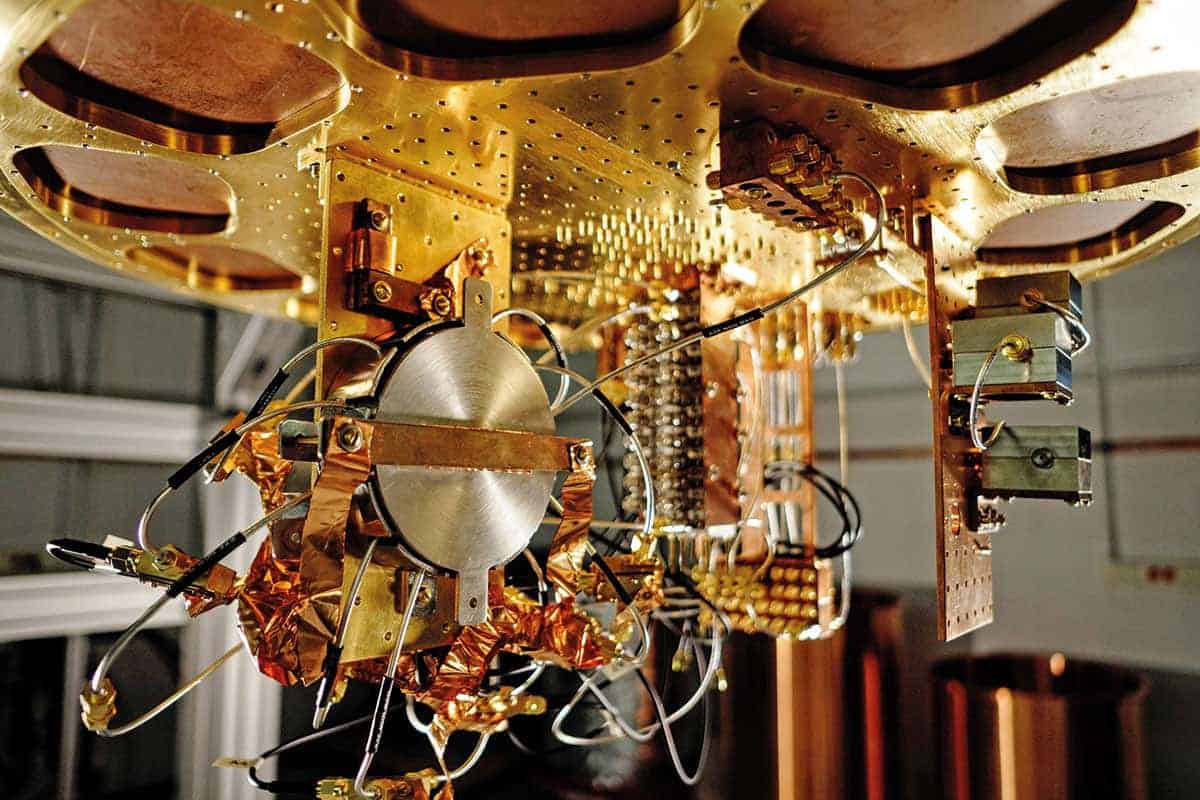Join Our Telegram channel to stay up to date on breaking news coverage
Joe Rogan, one of the most popular and most controversial podcast hosts on the Internet today, has made it his mission to voice his opinion on pretty much everything.
In a recent episode of his Joe Rogan Experience podcast, which featured noted comedienne Roseanne Barr, Rogan sounded off his views on the impact that Google’s “quantum supremacy” could have on the crypto space.
https://www.youtube.com/watch?v=R0ufbsXbsEM
The discussion itself was instigated by Barr, when she pointed out that humans are nearing ever so close to the dawn of the cashless economy. In response, the podcast host asked his guest if she had ever heard of the quantum computing phenomenon. Admitting his limited knowledge of the term and what it could really do to cryptocurrencies, Rogan said,
Quantum computers and Bitcoin
Quantum computers primarily perform calculations based on the probability of an object’s state, even before it is measured. So, while classical computers work with binary digits and measure states in 0s and 1s, quantum computers measure operations in qubits; the undefined properties of an object before it has been detected.
Basically, quantum computing is capable of accessing and processing larger amounts of data than the most powerful supercomputers of today. Earlier this week, Google made the claim that it had built the first quantum computer. As the Financial Times reports, Google claimed in a press release, that a calculation that would be performed in 10,000 years by Summit, the world’s most advanced classical supercomputer, would be processed in their new processor within 3 minutes and 20 seconds.
According to researchers from the Internet giant, this means that the “quantum supremacy,” a concept reserved for when quantum computers carry out calculations that had previously been impossible, had arrived.
Can Google break crypto?
As for its impact on Bitcoin, consider this; cryptocurrencies and cryptography rely on complex mathematical problems to provide the basis for digital and Internet communication trust. With a powerful enough computer (such as the one developed by Google), these problems could be solved in minutes. Suddenly, Bitcoin doesn’t seem so resilient anymore.
Regardless, some issues will need to be addressed, as well. Google was reportedly able to attain its quantum supremacy with a 72-qubit computer. Bitcoin uses SHA-256 for mining and ECDSA (Elliptical Curve Digital Signature Algorithm) for private and public-key encryption.
For ECDSA to be broken, the most popular known algorithm is Shor’s algorithm. Cryptography experts, however, believe that Shor’s algorithm can be reasonably run on a computer with 3,000 qubits; much higher than what Google is working with.
In addition to that, there is a scalability issue. Qubits work on a subatomic level, and thanks to the hardware restraints that quantum computers currently face, scaling qubits is incredibly complex.
It means nothing because Google's quantum breakthrough is for a primitive type of quantum computing that is nowhere near breaking cryptography.
We still don't even know if it's possible to scale quantum computers; quite possible that adding qbits will have an exponential cost. https://t.co/wSmO6ycaJk
— Peter Todd/mempoolfullrbf=1 (@peterktodd) September 24, 2019
When quantum computers eventually become more scalable, there will be a need for a similar progression in the hardware and encryption methods that will be implemented on blockchains.
The prospect of quantum computers increasing the general ability of devices to solve encryption problems poses an existential threat to cryptocurrencies in general. However, the slightly good news is that it remains practically impossible for that to happen for now or even for lifetimes to come.
Join Our Telegram channel to stay up to date on breaking news coverage


